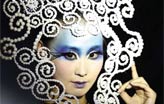Tough sail
Updated: 2011-06-24 11:08
By Andrew Moody (China Daily European Weekly)
The China historian John King Fairbank, who taught Fuller at Harvard, heavily influenced him.
"I was at the point of coming to China to learn Mandarin but I was wise enough to realize it would be a five-year commitment and I was a young man in a hurry," he says. "At the time also I was quite in love with my very attractive girlfriend who is my still attractive wife."
Monitor from the outset aimed to operate at a more niche level than major competitors such as McKinsey & Co and Bain & Co.
"You would go to McKinsey if, for example, you wanted to implement a program of sourcing textiles in South Asia. We were more geared to questions that were not given to replicable answers such as questions of strategy," he says.
The company, which now employs 1,500 worldwide, found its entry into China overshadowed by events elsewhere.
Its Beijing office opened on Sept 12, 2001, the day after the attacks on the World Trade Center.
"I was watching the horrible events unfold in the St. Regis hotel in Beijing. I must say everyone in China couldn't have been more gracious or sympathetic. I found myself unable to return to the United States, so I went to Shanghai and spent two full days in the city museum," he says.
Fuller is a keen observer of the Chinese economy and is concerned by the strategies of some Chinese companies.
He says a number have taken advantage of cheap money to stockpile raw materials such as iron ore and copper because they have an almost blind confidence these commodities will continue to rise in price.
"That has not been a good bet historically if you look at raw material prices over a 20- to 30-year period," he says.
He says some companies also have been caught badly out of their depth with their attempts at financial hedging to reduce their risk exposure.
"There is an old joke about playing cards for money. If you don't know who the sucker is, you are usually it. Unfortunately, when a number of Chinese companies got opposite Morgan Stanley and Goldman Sachs to negotiate hedges, they lost tremendous amounts of money," he says.
He believes the Chinese government's aim in the 12th Five-Year Plan (2011-2015) to steer the economy from being less dependent on exports and more geared toward the domestic consumer is the right path but that it will be difficult to implement.
"It is very difficult. There are some economies like South Korea and Taiwan that have migrated from the classic export-led East Asian model but it is something that has never been done in anything like an economy of this size," he says.
Fuller says Chinese companies have to be careful in the strategies they adopt, particularly in areas like research and development.
He says there is a tendency among some to believe investing heavily in this area is a passport to success when it actually might prove unprofitable.
"You have to look no further than Japanese companies, which endlessly spend fortunes on improving clock speeds on integrated circuits and the pixel densities on displays, " he says.
"If you look at the first (Sony) PlayStation, it was just so hopelessly over-engineered. It had dozens of times the computer capacity of the whole of NASA when they first landed Apollo on the moon. It was beautiful but just so unnecessary," he says.
Fuller is skeptical about those who say the rise in China will eventually lead to the East holding sway over the West in terms of ideas, particularly in the field of business and management.
"The best management thinking tends to come from markets where there is a sustained level of competition and dynamism and that is not the case in most Asian markets today. Will it be the case in the future? Probably, but we are looking at decades and not years," he says.
E-paper

Pret-a-design
China is taking bigger strides to become a force in fashion.
Preview of the coming issue
Franchise heating up
Party place
Specials

Premier Wen's European Visit
Premier Wen visits Hungary, Britain and Germany June 24-28.

My China story
Foreign readers are invited to share your China stories.

Mom’s the word
Italian expat struggles with learning English and experiences the joys of motherhood again.
